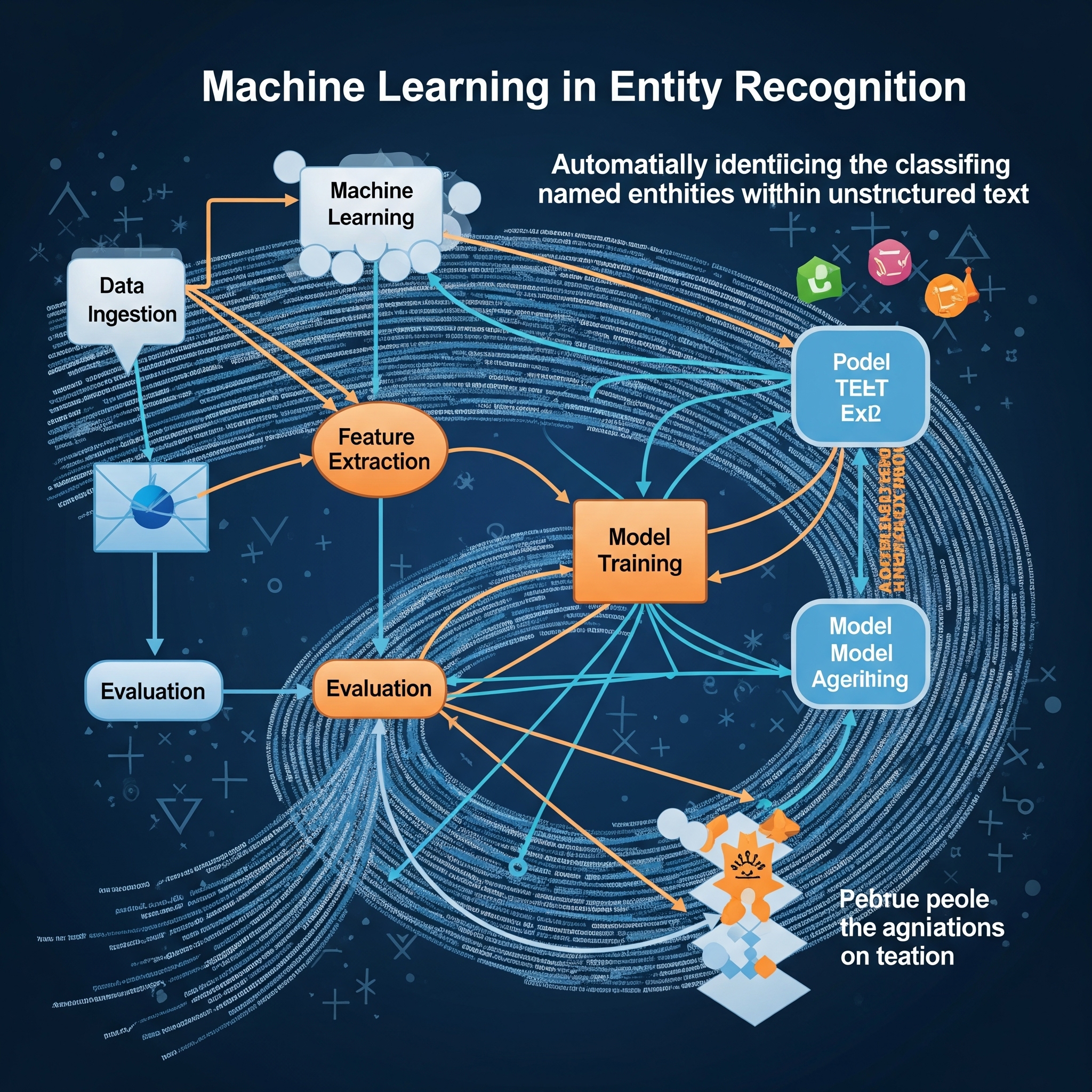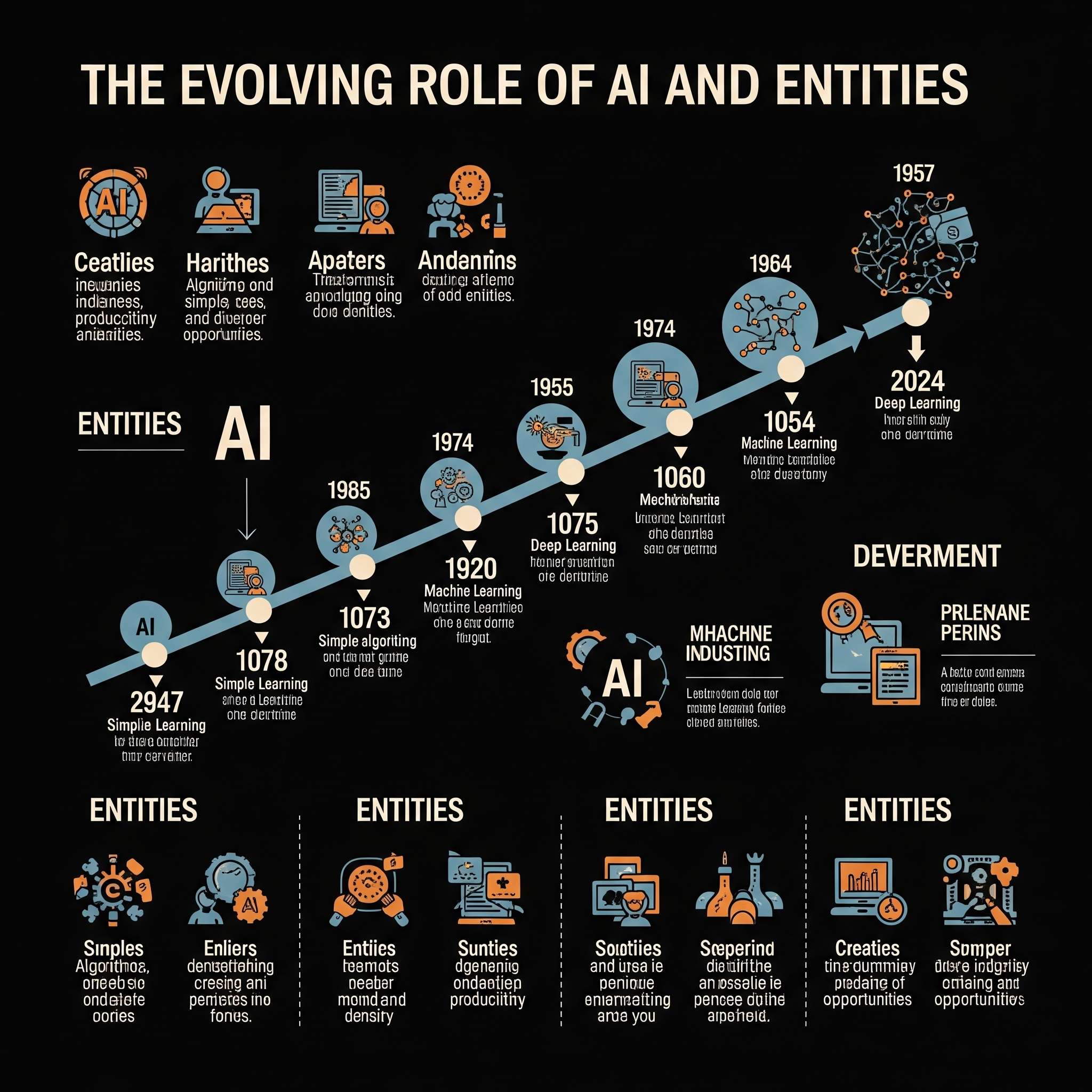2025-6-11
Your website's visibility profoundly hinges on how well it aligns with the latest search engine optimizations. At the heart of this adaptive landscape lies the concept of entities—singular, unique, distinguishable elements that search engines use to interpret information.
Entities are central to the way search engines rank and display your content to ensure it meets user intents efficiently. This article explores the tools, methods, and technologies that place entities at the forefront of SEO strategies.

Machine learning plays a pivotal role in enabling search engines to understand and categorize entities. Through advanced algorithms, search engines can interpret the relationships between words and the context in which they are used. This technology allows for a nuanced understanding of user queries and content intent, leading to more relevant search results.
RankBrain is Google's AI system that adapts search results based on the interpretation of new words and concepts it encounters. By focusing on entity connections, RankBrain enhances the delivery of accurate search results. It evaluates factors like the novelty of a page and topical authority, ensuring users receive timely and pertinent information.
Entities are scored using specific metrics to determine their significance and impact in search results. These metrics include:
When crafting SEO content, consider the entities you aim to highlight. This includes understanding which related entities should appear within your content to maximize relevance. By aligning with entities, your content stands a better chance of being interpreted correctly by search engines, elevating your site's search rank and visibility.
In the era of entities, traditional link-building practices are evolving. Links now serve as one of several signals that define entity relationships rather than solely acting as paths of value transfer between pages.
Focusing on valuable entity connections over volume can enhance your content’s authority and trustworthiness in the eyes of search engines.
Semantic search represents a paradigm shift in how search engines process queries and deliver results. It moves away from keyword-matching towards understanding the true intent behind queries, considering the context and meaning of each term. Entities are integral to semantic search because they allow search engines to map relationships and meanings across vast amounts of data.
Advanced semantic networks enable search engines to resolve ambiguities in language, discerning the difference between terms with multiple meanings or forms. For instance, recognizing that "Apple" can refer to a fruit or a technology company is an example of how entities improve semantic understanding. As search engines hone this capability, they offer users more accurate and contextually relevant results, effectively bridging the gap between human language and machine understanding.
Entities are essential for enhancing local SEO. By accurately defining your business as a local entity with relevant attributes such as location, services, and customer reviews, you can significantly improve local search visibility. This entails structuring your website data using schema markup to provide search engines with clear, detailed information about your entity.
Utilizing tools like Google My Business further cements your entity's presence in local search results. Adding precise information about your business hours, contact details, and location directly into Google's ecosystem helps maintain your site's authority and relevance when users search for services you provide in your geographic area.
E-commerce websites can greatly benefit from entity optimization by clearly defining products, categories, and brands. This approach aids search engines in distinguishing between identical or similar product offerings, attributing sales and reviews to the correct entities. Additionally, rich snippets and enhanced product listings become more achievable, providing users with visual and data-rich information directly in search results.
Employing structured data and ensuring alignment with recognized entities can lead to higher click-through rates, as consumers receive detailed insights upfront. By leveraging these entity-based strategies, e-commerce platforms can streamline discoverability, improve ranking, and ultimately drive more sales.
Artificial Intelligence (AI) continues to transform the landscape of entity recognition significantly. Through machine learning models, AI can decipher complex patterns and relationships not instantly apparent to human operators. AI's role in processing natural language and adapting to new information is pivotal in refining entity-based search functionalities.
For instance, AI can track evolving language trends and cultural contexts that influence public perception and interaction with entities. As AI technologies progress, search engines become increasingly adept at predicting user behavior and tailoring entity connections to enhance user experiences. This evolving symbiosis between AI and entity recognition ensures that search engines remain agile and responsive to ever-changing information paradigms.

The future of SEO is intricately linked with the continued development of entity recognition technologies. As the digital space becomes more crowded, establishing and maintaining an entity's notability will be crucial. Businesses must stay informed and adaptable to these changes, integrating emerging technologies and methods to remain competitive.
Moreover, privacy considerations and data protection policies increasingly influence how entities are recognized and classified. Ethical SEO practices will evolve to ensure compliance with regulations while continuing to capture the granularity of entity-based data.
Ultimately, the key to leveraging entity-based SEO lies in a forward-thinking approach, incorporating continual learning, strategic content optimization, and technological synergy to harness the full potential of entity recognition.
The future of SEO lies in the deepening relationship between artificial intelligence and entity recognition. As AI becomes more adept at processing natural language, detecting trends, and understanding user context, entity-based search will grow more personalized, predictive, and precise.
Key emerging trends include:
AI-driven contextual understanding for more dynamic, intent-focused results.
Greater emphasis on ethical data handling and privacy-aware entity tracking.
Increased importance of entity notability and trust signals to differentiate high-value content.
Enhanced local and voice search optimization powered by real-time entity interpretation.
To stay ahead, businesses must adopt a forward-thinking mindset—continuously refining their content strategies, embracing structured data, and adapting to the evolving technical landscape that underpins search engine algorithms.
Entities have become the cornerstone of modern SEO strategies, redefining how content is created, categorized, and ranked. By focusing on clearly defined, semantically rich entities, businesses can enhance their online visibility, improve user intent matching, and maintain topical authority across search engines.
Whether you're optimizing for local SEO, e-commerce, or broader web presence, leveraging structured data, schema markup, and entity-focused content ensures your website remains competitive in a constantly evolving search environment. Embracing entity-based SEO is no longer optional—it is essential for achieving sustainable digital success.